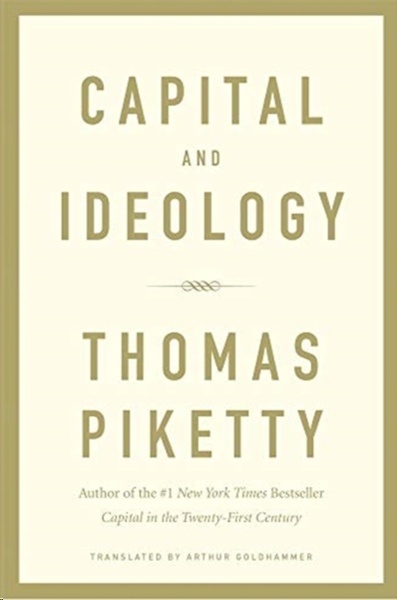Capital and Ideology

Editorial Harvard University Press
Fecha de edición marzo 2020 · Edición nº 1
Idioma inglés
EAN 9780674980822
1150 páginas
Libro
encuadernado en tapa dura
Resumen del libro
The epic successor to one of the most important books of the century: at once a retelling of global history, a scathing critique of contemporary politics, and a bold proposal for a new and fairer economic system. Thomas Piketty's bestselling Capital in the Twenty-First Century galvanized global debate about inequality. In this audacious follow-up, Piketty challenges us to revolutionize how we think about politics, ideology, and history.
He exposes the ideas that have sustained inequality for the past millennium, reveals why the shallow politics of right and left are failing us today, and outlines the structure of a fairer economic system. Our economy, Piketty observes, is not a natural fact. Markets, profits, and capital are all historical constructs that depend on choices.
Piketty explores the material and ideological interactions of conflicting social groups that have given us slavery, serfdom, colonialism, communism, and hypercapitalism, shaping the lives of billions. He concludes that the great driver of human progress over the centuries has been the struggle for equality and education and not, as often argued, the assertion of property rights or the pursuit of stability. The new era of extreme inequality that has derailed that progress since the 1980s, he shows, is partly a reaction against communism, but it is also the fruit of ignorance, intellectual specialization, and our drift toward the dead-end politics of identity.
Once we understand this, we can begin to envision a more balanced approach to economics and politics. Piketty argues for a new "participatory" socialism, a system founded on an ideology of equality, social property, education, and the sharing of knowledge and power. Capital and Ideology is destined to be one of the indispensable books of our time, a work that will not only help us understand the world, but that will change it.
Biografía del autor
Thomas Piketty (Clichy, Francia, 1971) es director de investigación en la École des Hautes Études en Sciences Sociales (EHESS), profesor en la Paris School of Economics, de la que fue su primer director, y co-director de la World Inequality Database (WID.world).<br> Tras doctorarse con apenas 23 años en la London School of Economics (LSE) bajo la dirección de Roger Guesnerie, ha sido profesor en distintas instituciones, entre las cuales la propia LSE y el Massachussets Institute of Technology (MIT). Es autor de decenas de artículos académicos en algunas de las publicaciones más prestigiosas, como American Economic Review, Journal of Economic Theory o Econometrica, así como de numerosos libros, entre los que destaca El capital en el siglo XXI (2013), del que se han vendido más de 2,5 millones de copias en todo el mundo.<br> Ha recibido, entre otros, el Premio Yrjö Jahnsson (2013) de la Asociación Europea de Economía (EEA), ex aequo con la economista Helene Rey, al economista más destacado menor de 45 años. El 1 de enero de 2015, rechazó la Legión de Honor otorgada por el gobierno francés haciendo la declaración: Rechazo esta nominación porque pienso que no es el papel del gobierno el decidir quién es honorable.








